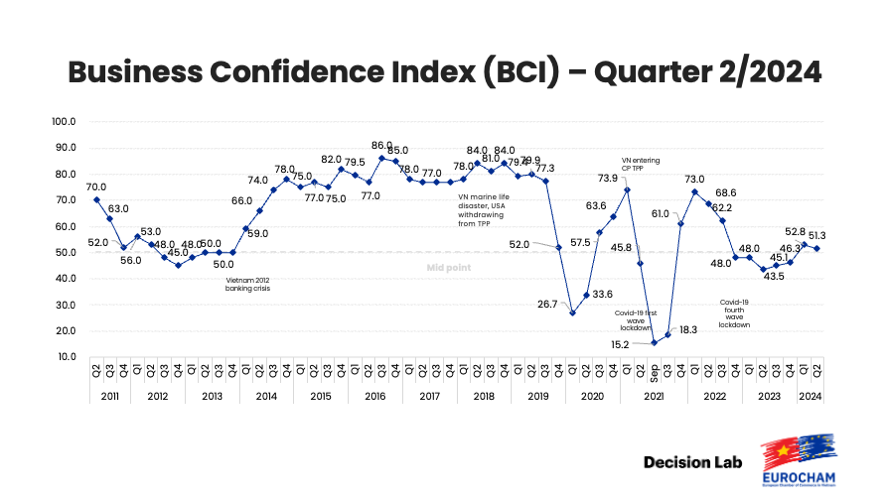HCMC – European businesses active in Vietnam have shown a more cautious outlook, reflected in the second-quarter EuroCham Business Climate Index (BCI) which dropped to 51.3 from 52.8 in the first quarter.
While many European firms anticipate economic stabilization and improvement in the coming months, the survey revealed growing caution due to challenges such as uncertain consumer demand, rising input costs, and ongoing supply chain disruptions.
Nearly 70% of respondents said they would recommend Vietnam to other foreign investors, highlighting the country’s strong economic fundamentals, growing consumer market, and favorable location in Southeast Asia.
However, businesses expressed concerns about regulatory obstacles, including administrative bottlenecks and difficulties in obtaining licenses and permits. These challenges are seen as hindering business efficiency and investment.
The EU-Vietnam Free Trade Agreement (EVFTA) is positively impacting companies, with 27% of respondents reporting benefits. However, barriers such as complex legal compliance requirements and a lack of recognition of international standards by local authorities remain, preventing businesses from fully leveraging the agreement.
Around 37% of businesses have set targets to achieve carbon neutrality by or before 2050, but they have faced challenges such as a lack of incentives and regulations, limited access to clean energy sources, and financial constraints.
“Vietnam’s economic potential is undeniable, and the European business community remains confident in its long-term growth,” said Dominik Meichle, chairman of EuroCham Vietnam. “While our survey points to areas for improvement, we believe that by working together to address administrative and regulatory hurdles, we can create a more efficient and attractive business environment.”
The Government is taking steps to address these concerns, such as streamlining administrative procedures and improving the regulatory environment. These efforts are expected to boost business confidence and attract more foreign investment.









